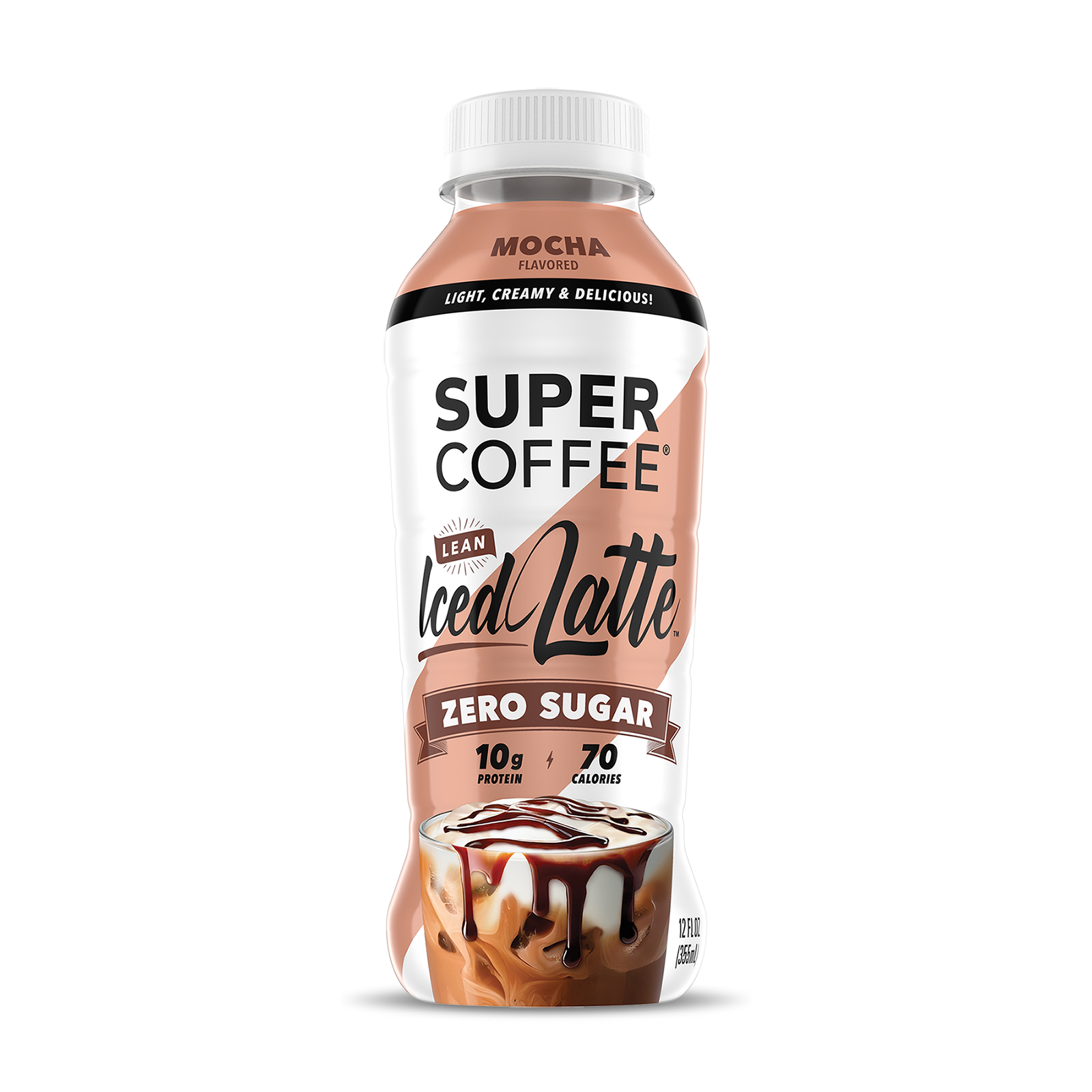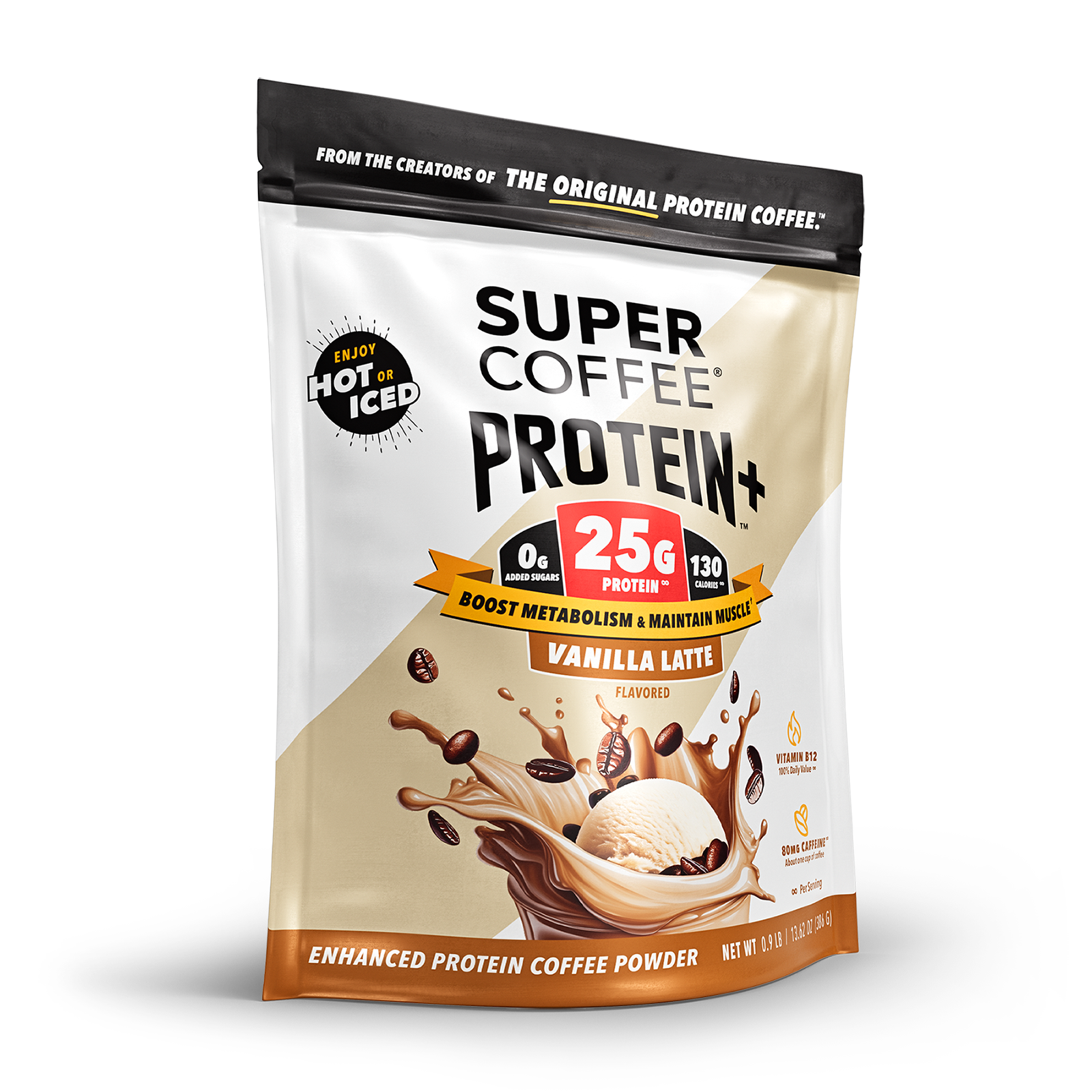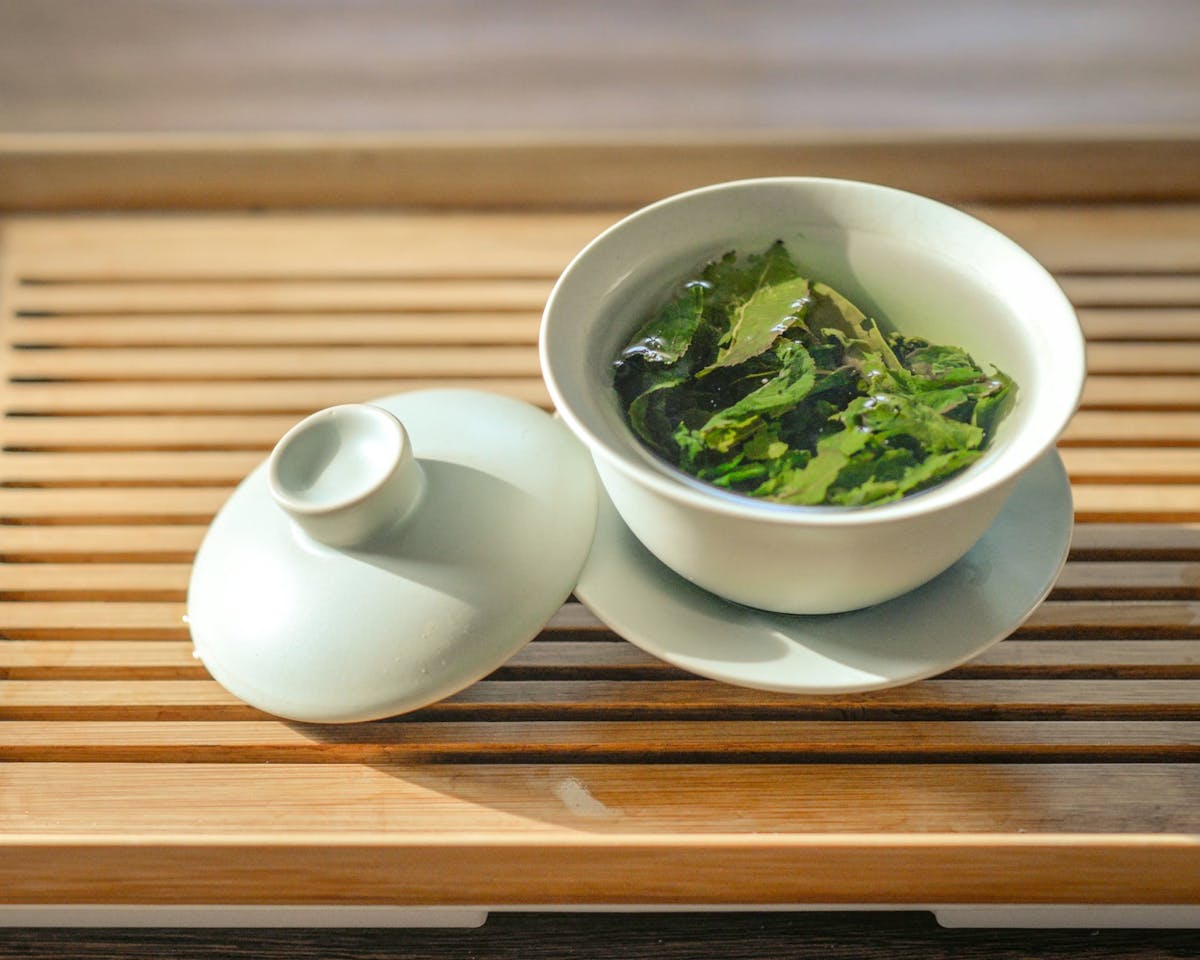Your cart is empty
It can be difficult to keep up with fads. By the time you’re aware of the latest and hottest trends, they’re likely to be yesterday’s news.
That’s certainly the case with most fad diets – and it’s also true for dietary supplements like L-theanine. Sometimes they’re even gone before most people are aware of them.
But it’s important to understand the pros and cons of the ones that stick around for a while.
Diets, Supplements and Health
Most readers are probably too old to remember the Lemonade Diet and the Cabbage Soup Diet, both of which had their moments of popularity in the early-to-mid 20th century. (Few people alive today will remember the “cigarette diet,” pushed by Lucky Strike in 1925.)
And if you blinked, you may have missed the Sleeping Beauty Diet, Deal-A-Meal, the Cotton Ball Diet and the Pioppi Diets in more recent years.
On the other hand, some diets like the Weight Watchers’ Diet, the Atkins Diet, the Paleo Diet and the Keto Diet soar to popularity and remain there. They’re the ones that had an actual basis in medical science.
Just like diets, many popular dietary supplements come and go – often, because they’re discovered to be unhealthy or dangerous.
The weight loss supplements Ephedra and fen-phen, as well as herbal Viagra, are among the most notorious. But even overconsumption of vitamins A and E has been linked to an increased risk of death.
Well over 50% of American adults now take dietary supplements, which makes safety a crucial consideration when discussing any supplement.
That brings us to L-theanine, a dietary supplement which has become increasingly popular over the last few years. It’s often used by people seeking stress and anxiety relief, or better attention and focus.
But is it safe? Are there L-theanine side effects to worry about?
From what we know so far the supplement appears to be safe, and its side effects appear to be minimal at worst. There’s a lot more to learn about L-theanine, though, before you decide to add it to your health and wellness regime.
Let’s do that now.

L-Theanine: Brought to You by Green Tea
It’s no secret that green tea is good for you. It’s been shown to have positive effects on cardiovascular health, cholesterol and blood pressure, and research shows that it apparently has antioxidant, antibacterial and even anti-tumor properties.
Many of those benefits have been traced to the presence of caffeine, and compounds known as polyphenols, flavonols and catechins, in green tea.
In fact, they’re present to some degree in all types of tea, because green, oolong and black tea are all made from the leaves of the Camellia sinensis plant. The different varieties of tea are produced by using different processing methods.
There’s one more substance in tea that also provides bountiful health benefits, an amino acid called L-theanine (also known as r-glutamylethylamide). And the greatest amount of L-theanine is found in green tea, produced from Camellia sinensis leaves which receive only minimal processing before being used to make tea or sold.
(A side note for those concerned about the side effects of L-theanine: research indicates that consuming as many as five cups of green tea a day is safe and effective.)
You can probably guess that a cup of green tea contains much less of the amino acid than dietary L-theanine supplements – so the supplements, which are available in pill, capsule, tablet and powder form, are likely to be the best source of L-theanine if you want to add it to your daily diet.
But should you? Research suggests that it may be a good idea, at least for several common health or wellness concerns.
Health Benefits of L-Theanine
As we’ve mentioned, L-theanine is most often used to overcome the effects of stress and anxiety, and to enhance brain function and focus. Those are the most prominently known, and highly-researched, effects of L-theanine – but they’re definitely not the only ones.
Warning: we can’t really explain some of these effects without referring to a little biology and pharmacology. We’ll try to make the more complicated stuff go down easy.
L-Theanine for Stress and Anxiety
One of the most important properties of L-theanine that scientists have identified is that it is able to cross the “blood-brain barrier.”
That’s the same thing that neurotransmitters like gamma-aminobutyric acid (GABA) and glutamic acid can do, and each of them play major roles in mood regulation. (Remember this paragraph; we’ll be referring to it again shortly.)
It’s believed that L-theanine affects mood in much the same way. The amino acid appears to interact with the activity of neurotransmitters, dopamine and serotonin in the brain, in order to provide anxiolytic (anxiety-reducing) and calming effects.
Those effects are measured by several methods. One is checking the salivary glands for levels of cortisol, the so-called “stress” hormone; another is measuring participants’ performance on standard tests before and after administration of L-theanine.
And using those methods, studies show that L-theanine can have positive effects in treating stress and anxiety.
A review of five randomized controlled trials (including crucial studies conducted by researchers like Kenta Kimura) compared the effects of L-theanine supplements and placebos; they found that the L-theanine was able to reduce both anxiety and stress in participants placed into situations where psychological stresses were created. An even larger survey of similar trials reached essentially the same conclusion.
Those studies all involved “healthy” adults. Another clinical trial, which centered on patients with schizophrenia, found that L-theanine helped them as well, reducing their symptoms and helping to relieve related anxiety.
L-Theanine and Cognitive Benefits
When L-theanine crosses the blood-brain barrier, it is able to interact with several other hormones and brain functions.
Researchers believe that it lowers the levels of the hormone corticosterone, which can otherwise block memory formation and some types of cognitive function. L-theanine also appears able to improve cognitive processing by affecting alpha brain wave activity.
Scientists have made one more interesting discovery.
In patients suffering with anxiety, the administration of L-theanine can improve attention span, the processing of information presented visually, reaction time, and accuracy during multi-tasking.
The effects on cognition were particularly noticeable when L-theanine supplemented the effects of caffeine administered at the same time, as demonstrated in a key study by Owen, Parnell, De Bruin and Rycroft.
In short, studies have shown that L-theanine boosts cognitive performance, and the combination of L-theanine and caffeine has an even greater effect on alertness.
L-Theanine and Sleep
No one needs placebo-controlled, double-blind research studies to know that lowering stress and anxiety, and inducing relaxation, will result in better sleep. That’s another benefit that L-theanine has been found to provide.
There’s even been great interest in the possibility of using the amino acid as a natural sleep aid, because it doesn’t act as a sedative.
L-theanine’s effect on alpha brain waves simply enhances both sleep quality and duration, without the next-day drowsiness or the possibility of addiction that comes with the use of prescription sleep medications. Impressively, the beneficial effects on sleep are noticeable even in patients suffering with anxiety disorders.
L-Theanine and Neuroprotective Effects
Here’s something else that L-theanine can apparently do after crossing the blood-brain barrier. (We told you that would continue to be important.)
It seems to bind to glutamate receptors in the nervous system. That provides an additional effect that promotes cognitive function, but it also serves to protect elements of the nervous system – as does L-theanine’s effect on GABA levels, serotonin and dopamine.
L-Theanine: Antioxidant and Anti-Inflammatory Properties
Many of the components in green tea, specifically its polyphenols, flavonols and catechins, have been credited with the antioxidant and anti-inflammatory properties credited to the tea.
However, there are indications that L-theanine is also responsible. Research shows that the amino acid is able to help battle the oxidative stress damage done to the body by free radicals, and to help fight inflammation as well.
There’s also evidence that L-theanine helps support the body’s immune function. One study, in particular, showed the supplement’s effectiveness in helping to battle upper respiratory infections and inflammation in the gastrointestinal tract.
L-Theanine: Blood Pressure and Heart Rate
The stress-reduction ability of L-theanine has related benefits. For example, studies have shown that the amino acid produced lower blood pressure and heart rate, along with the lower anxiety levels we’ve discussed, in test participants.
No research has yet been done to study the possible use of L-theanine as a treatment specifically for high blood pressure, but the implications are encouraging.
Other Potential Benefits of L-Theanine
- Intestinal Diseases: Doses of L-theanine seemingly helped to prevent the development of gastric ulcers in animal studies; the amino acid’s neuroprotective and antioxidant properties are believed to be responsible.
- Attention Deficit Hyperactivity Disorder: Early studies appear to show that a combination of caffeine and L-theanine may be a potential therapeutic option for the treatment of patients with ADHD.
- Cancer: There has been very encouraging research showing that L-theanine may help with the treatment of several forms of cancer, including inhibition of growth in the cells responsible for prostate cancer, lung cancer and leukemia.
It’s also been suggested that L-theanine may be a potential weapon against obesity by assisting in weight loss regimens, but research is still inconclusive in that area.
Are There L-Theanine Side Effects To Worry About?
Many L-theanine branded supplements (like Suntheanine) have been labeled GRAS (generally recognized as safe) by the Food and Drug Administration (FDA), but that doesn’t mean the government has actually studied the substances in great detail.
Here’s a startling, little-known fact: companies can even “self-affirm” that they’ve performed tests to verify the safety of their products. So we have to dig a little deeper.
We’ll lead with the most important information first. No major negative side effects or adverse effects have been reported in association with the use of L-theanine.
Possible Minor Side Effects
There have been anecdotal reports that a small number of users have suffered minor problems like headaches or difficulty falling asleep.
The latter may seem odd, given L-theanine’s ability to help promote relaxation and healthy sleep, but everyone’s body reacts differently to supplements and medication; it’s certainly possible that a few people could suffer minor side effects that appear counterintuitive.
There are other, even less common possible side effects occasionally reported with the use of high doses of L-theanine, including dizziness and nausea, stomach aches and diarrhea, and (again, counterintuitive) difficulty focusing.
That last one is sometimes called “theanine brain fog” or a “theanine high” by a small number of users, but it hasn’t been confirmed in any scientific research, and it seems likely to be associated only with extremely high doses of L-theanine.
It’s also important to note that most of those anecdotal reports concern the use of L-theanine and caffeine together, or the use of green tea supplements which contain L-theanine and all of the other components of green tea.
Possible Drug Interactions
There are no dangerous interactions known between L-theanine and specific medications.
However, we’ve discussed two of the possible effects of the supplements. One is a decrease in blood pressure; the other is the “slowing” of brain and nervous system activity that allows for greater comprehension and cognitive function.
It’s possible that, in the first case, medications taken to reduce blood pressure could combine with L-theanine to cause blood pressure to drop too low. In the second case, people taking stimulant medications, which are meant to speed up brain and nervous system function, may find that they “fight” with L-theanine and cause unexpected metabolic results.
In both cases, it’s a good idea to seek medical advice from healthcare professionals before taking L-theanine. The same advice applies to those who are pregnant or breastfeeding, since there have been no studies confirming the safety of L-theanine for people in those two groups.
And, as with all medications and supplements, it’s best to avoid combining their use with alcohol.
How Much L-Theanine Should You Take?
Just as there are no conclusive studies on the safety of L-theanine, there are no definitive, science-based rules on the proper amount of the supplement users should take.
The majority of clinical studies that focused on the amino acid used doses between 100-300 milligrams; most naturopaths and herbal medicine experts suggest starting low, with about 100 mg of L-theanine per day, and increasing as needed.
That should be more than enough, as 300mg is about ten times more L-theanine than you’d get from a cup of green tea – and the limited testing that has been done reported that as much as 4000mg-6000mg per day was still safe, without major side effects.
What if you want to pair the L-theanine with caffeine? Once your body has become accustomed to L-theanine supplements, a good rule of thumb is to take about equal amounts of caffeine and L-theanine.
Blog posts
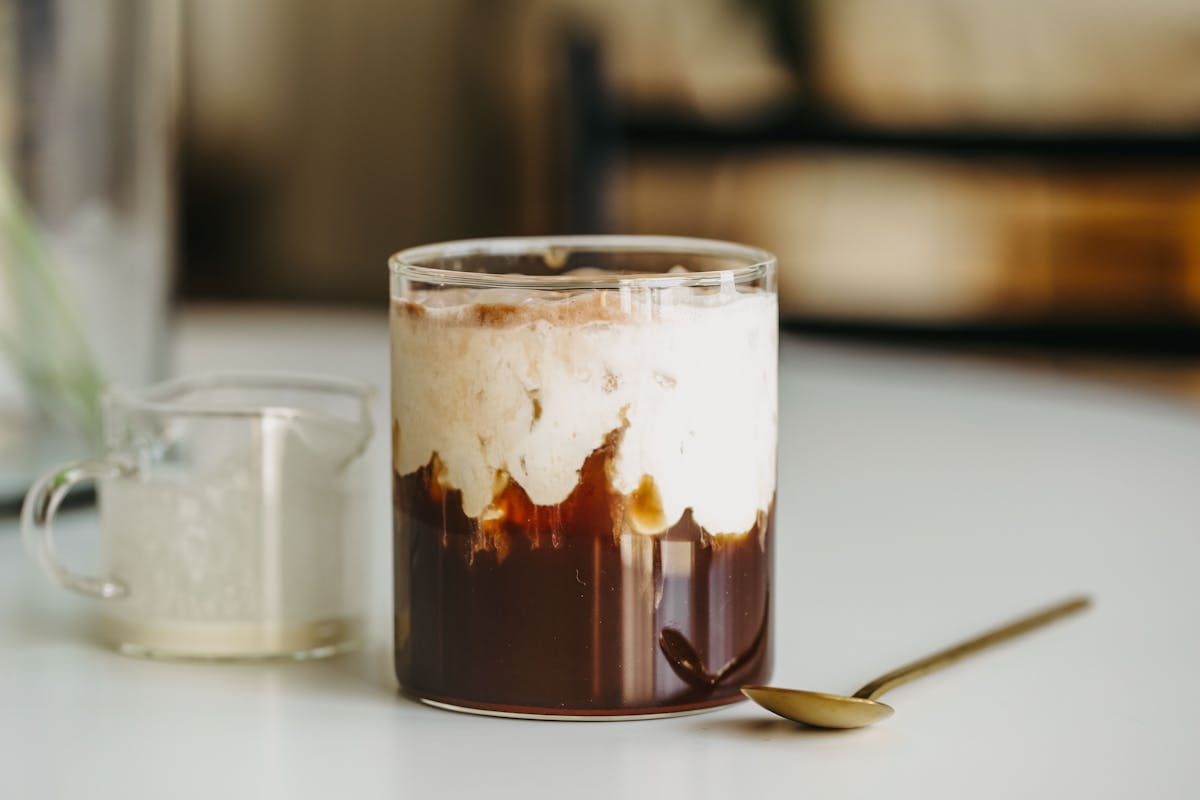
Cold, creamy and delicious - This chocolatey cold brew recipe is the perfect treat to kickstart your morning! The Recipe Chocolate Cream Cold Brew Prep Time: 1 minutes Cook Time: 5 minutes Ingre...

Indulge in the warm embrace of autumn with Pumpkin Spice Snickerdoodles - soft, spiced, and utterly irresistible! The Recipe Pumpkin Spice Snickerdoodles Prep Time: 10 minutes Cook Time: 1 hour ...

Low Carb Berries & Cream Waffles
These low carb/low sugar waffles are delicious, wonderfully crispy on the outside, and fluffy on the inside. You can also double batch and freeze for easy weekday breakfasts. Featuring our almost-...
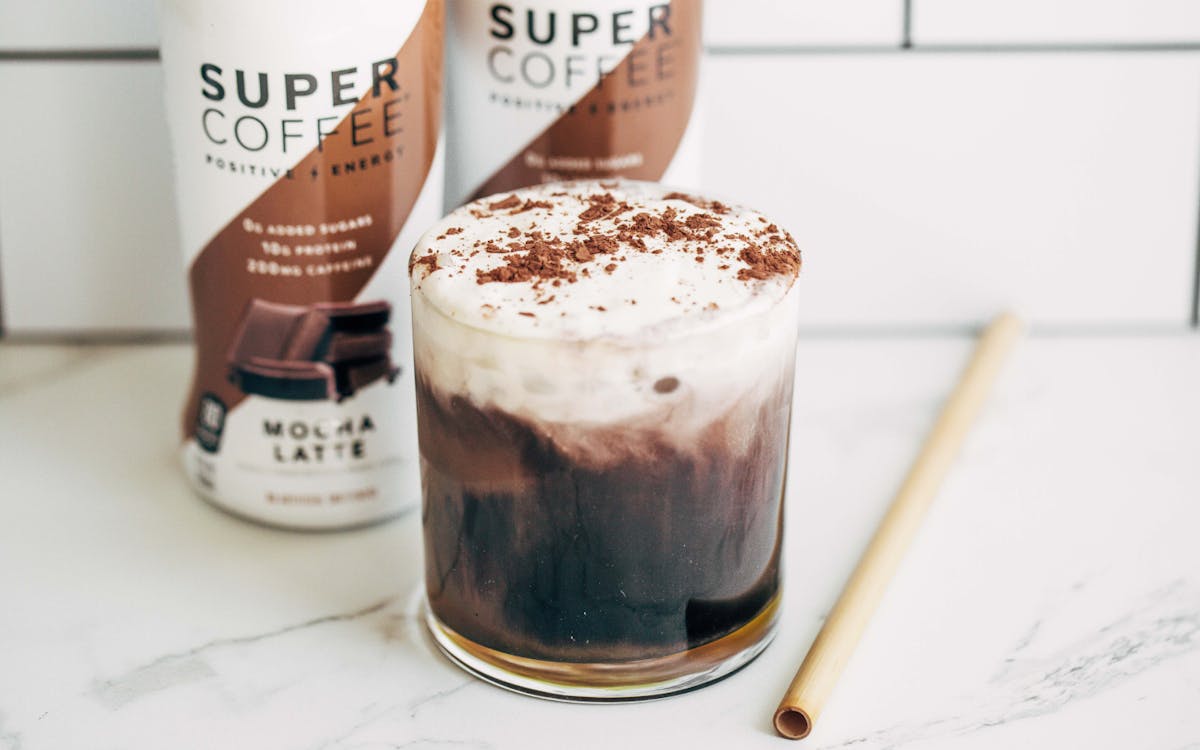
This may be the most fun latte recipe we’ve tried yet! With gooey & decadent black chocolate drizzle and a thick layer of creamy French Vanilla, just one sip of this iced latte will transport ...

Strawberry Sprinkle Keto Coffee Recipe
Nutritional Info Calories: 274 Fat: 26.7g Carbs: 5.7g Protein: 4.5g Sugar: 2.1g Ingredients 3 strawberries, sliced. 3-4 tbsp heavy cream or half & half. Enough ice to fill a glass. 1/2 cup S...

8 Healthy Coffee Recipes That Are Better Than Starbucks
There’s no question about it. Coffee is good for you. Those who don’t like black coffee, of course, commonly add milk, cream and sugar – even if that also means adding calories, fat or carbs to the...



